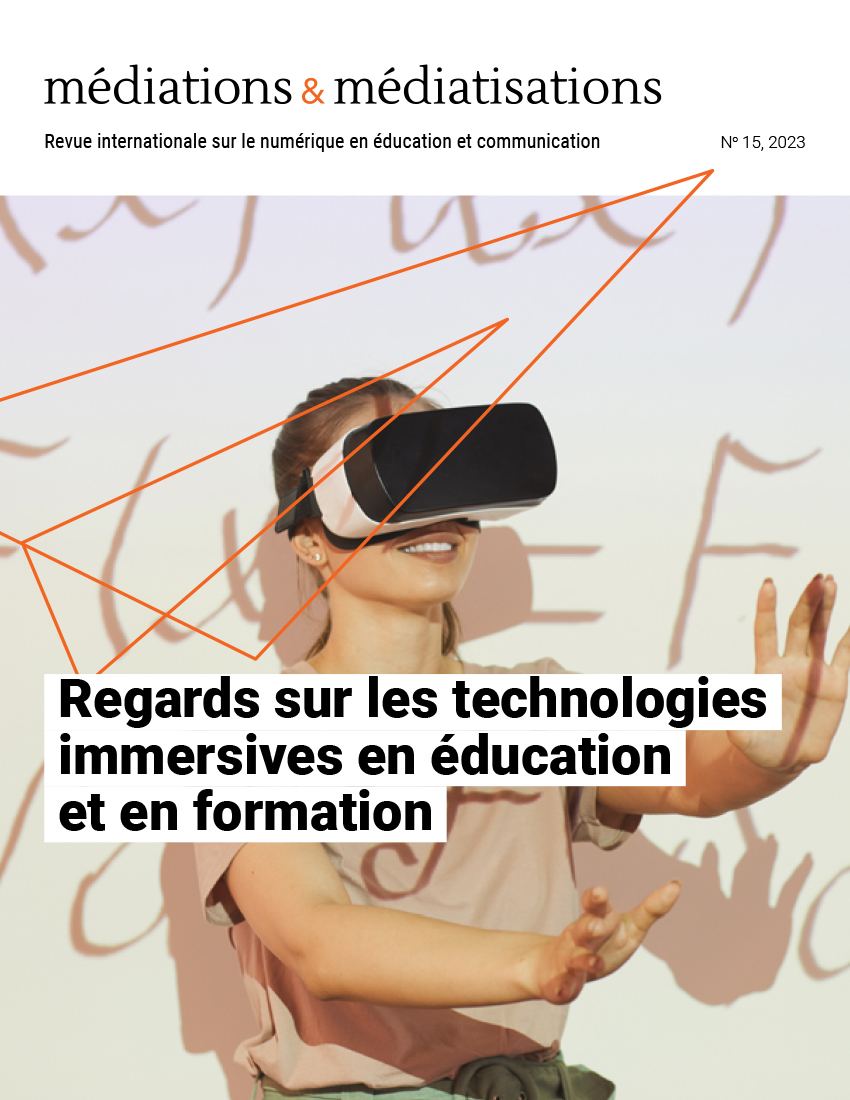Le design, le développement et l’évaluation d’une simulation de gestion de projet agile avec Minecraft Education : partage d’une approche innovante en enseignement supérieur
Contenu principal de l'article
Résumé
Cette contribution praticienne présente le processus qui a mené à la refonte d’un scénario pédagogique au tournant de l’année 2020 dans des cours universitaires. Ce projet avait pour but de transposer dans un environnement numérique, soit Minecraft Education Edition (MEE), une simulation de gestion de projet agile initialement conçue pour se dérouler avec, sur tables, des briques Lego® et, aux murs, des cartes adhésives. En plus d’illustrer la valeur ajoutée du recours aux approches d’ingénierie pédagogique ADDIE (analyse, design (ou conception), développement, implantation et évaluation) et SAM2 (Successive Approximation Model) pour, d’un point de vue technopédagogique, parvenir à exploiter de façon judicieuse cette application numérique, l’article souligne qu’il importe d’offrir aux apprenants la possibilité de se familiariser avec l’environnement de MEE avant qu’ils ne sautent tête la première dans cet univers virtuel qui, pour plusieurs, s’avère méconnu. Dotés de connaissances et d’une expérience antérieure le jour de l’immersion, ces derniers démontrent davantage de confiance en leurs capacités de réussir les tâches d’apprentissage demandées. Pour conclure, des recommandations issues de nos réflexions et de notre expérience sont émises.
Téléchargements
Renseignements sur l'article
Références
Bates, T. (2015). L'enseignement à l'ère du numérique. Traduction de Teaching in a Digital Age. http://teachonline.ca/sites/default/files/pdfs/tony_bates-teaching_in_a_digital_age-fre.pdf
Beck, K. (2001). Manifeste pour le développement Agile de logiciels. https://agilemanifesto.org/iso/fr/manifesto.html
Bourdeau, S., Coulon, T. et Petit, M.-C. (2021). Simulation-based training via a «readymade» virtual world platform: teaching and learning with Minecraft Education. IT Professional. IEEE Computer Society, March/ April.
Coulon, T., Bourdeau, S., Petit, M.-C. (2021). Simuler un projet dans un monde virtuel : Minecraft Education comme plateforme collaborative et immersive [communication]. ROC 2021 Technologies éducatives pour l’enseignement et l’apprentissage. https://tinyurl.com/yc3kmnxa
Branch, R.M. (2009). Instructional design: The ADDIE approach. Springer.
Chamberland, G., Lavoie, L. et Marquis, D. (2003). 20 formules pédagogiques. Presses de l’Université du Québec.
Desrosiers, C. (2017, 23 février). Les jeux sérieux en éducation, qu’existe-t-il en recherche et au collégial? Profweb. https://tinyurl.com/jrbefsyx
Forget, P. (2015). Les jeux sérieux au service de l’apprentissage. Le Tableau, 4(5). https://pedagogie.uquebec.ca/le-tableau/les-jeux-serieux-au-service-de-lapprentissage
Guilbault, M. et Viau-Guay, A. (2017) La classe inversée comme approche pédagogique en enseignement supérieur : état des connaissances scientifiques et recommandations. Revue internationale de pédagogie de l'enseignement supérieur, 33(1), 1-20. https://doi.org/10.4000/ripes.1193
Kolb, D.A. (1984). Experiential learning: Experience as the source of learning and development. Prentice-Hall.
Lépinard, P. (2021a). Les jeux en ligne massivement multijoueurs et à mondes ouverts comme espaces d’apprentissage expérientiel : le cas d’un cours de gestion de projet mené avec Minecraft Education Edition [communication]. 4es journées de pratique et de recherche du groupe thématique AIMS – MACCA Management. https://hal.science/hal-03103800
Lépinard, P. (2021b). Jeux vidéo multijoueurs à monde ouvert pour l’apprentissage expérientiel de la gestion de projet Edition [communication]. 26e conférence de l'AIM. https://hal.science/hal-03247971
Krivitsky, A. (2019). Lego4Scrum: Scrum Simulation with LEGO. Third complete edition.
Stockless, A. (s.d.) Soutenir le processus d'enseignement-apprentissage des sciences et technologie avec un environnement numérique d'apprentissage. Université du Québec à Montréal.
Zainuddin, Z. et Halali, S.H. (2016). Flipped Classroom Research and Trends from Different Fields of Study, International Review of Research in Open and Distributed Learning, 17(3), 313-340. https://files.eric.ed.gov/fulltext/EJ1102721.pdf

